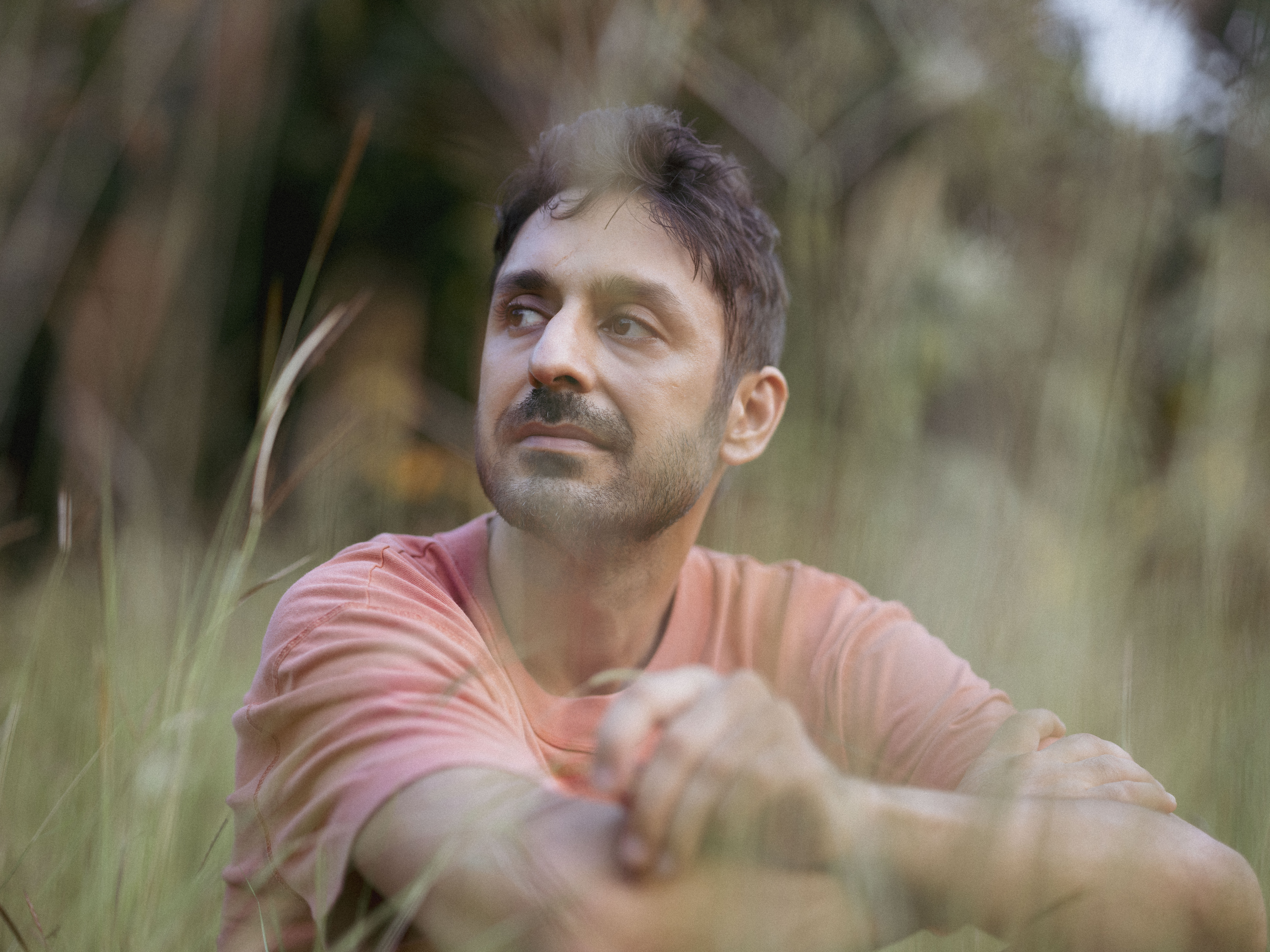COVER STORY: The Evolution of Dualist Inquiry
The poster boy of Indian electronica on his breakthroughs, challenges and how to stay relevant
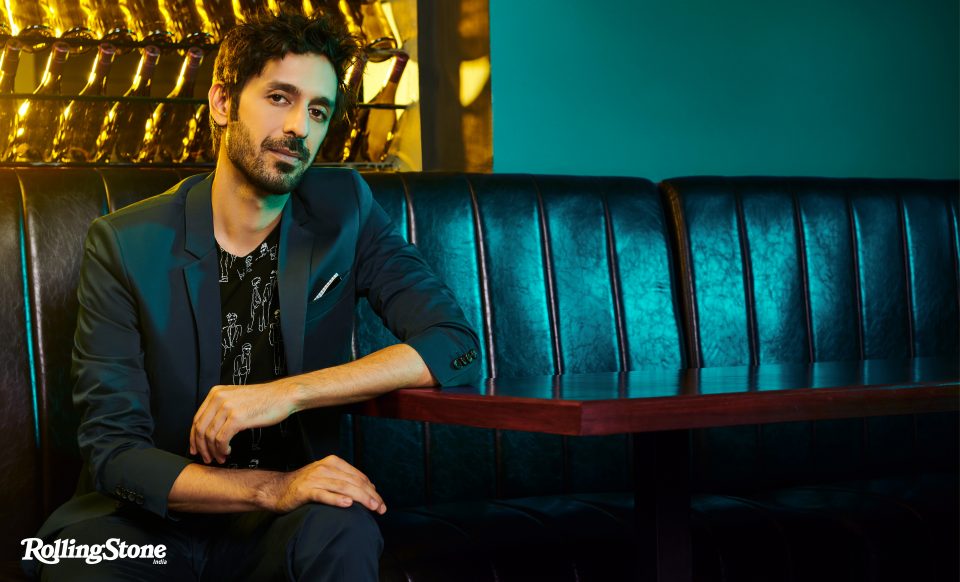
Producer, DJ and guitarist Dualist Inquiry aka Sahej Bakshi looks back at 10 years in the music industry and looks ahead in India's ever-growing electronic music realm. Suit by Paul Smith; T- Shirt by Moschino Couture available at The Collective. Photo: Kunal Gupta for Rolling Stone India
As far as tumultuous years go, everyone will always have something for 2020. New Delhi-bred, Goa-based producer, guitarist and more recently video maker Dualist Inquiry aka Sahej Bakshi has lots to go on about as well.
He got married to Anna da Costa in his hometown of Chandigarh on March 15th and the newlyweds got stranded in New Delhi for about five months before making it back to their North Goan home in the village of Moira. Bakshi says over a video call, “I basically spent most of that time either in some kind of anxiety-ridden paralysis or learning. My mind was like a scrambled egg when the lockdown hit.”
And this was right around when his five-year-old cat companion Mowgli was diagnosed with cancer, who passed away in July. He had none of his gear in New Delhi save for a pair of headphones and so he dived into tutorials about photography, visual effects and never anything to do with music. “It wasn’t even about being productive so much, I just found them comforting,” he says.
In this process of looking back at the past year, Bakshi invariably begins to look back at a decade that he’s undoubtedly thrived in. Studying in the Doon School in Dehradun (where he even formed a band with friend and fellow musician Imaad Shah of funk/nu-disco duo Madboy/Mink), Bakshi sidestepped a regular office job for his love for music. In a 2013 interview, he describes how he found a “wormhole” when taking an elective called Introduction to Music Technology, which led to enrolling at Thornton Music School at University of Southern California in Los Angeles.
He began loving the electronic – specifically EDM – boom that was sweeping the globe and Dualist Inquiry’s early success is certainly rooted in the time of Deadmau5, Skrillex, David Guetta and more. After performing a bit in 2010, Bakshi arrived on the scene with Dualism in 2011, armed with a guitar in hand that perhaps made a statement that he was a performer more than a standard fare DJ.
A decade ago, electronic music in India was just beginning to grow and branch out into the myriad different subgenres and scenes we see today. Bakshi rode that wave with confidence, alongside the likes of seasoned artists such as Midival Punditz but also peers such as Nucleya, Shaa’ir + Func and more. He says, “It’s about luck, being at the right place at the right time. There’s this quote I came across, ‘Luck is when preparedness meets opportunity.’ It stuck with me, because you need to have that opportunity and be prepared… then you’re lucky.”
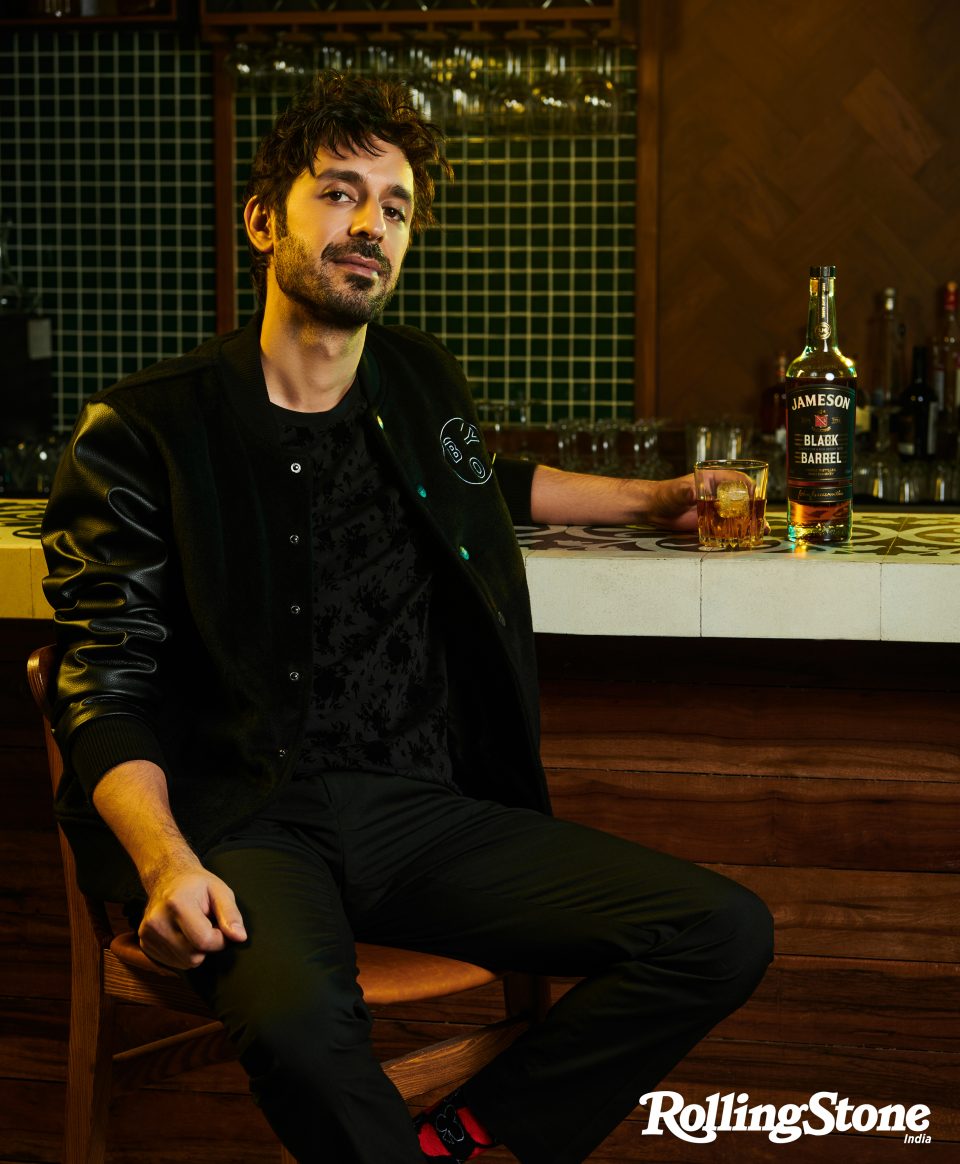
Jacket by Boy London available at The Collective; T- Shirt by Jack & Jones; Trousers by Marks & Spencer; Socks by Balenzia; Celebrations Partner: Jameson Black Barrel. Photo: Kunal Gupta for Rolling Stone India.
After an international festival debut at the Great Escape in the U.K. in 2011, Dualist Inquiry went on the same billing as David Guetta at Invasion Festival in India in 2012. On his own label, Dualism Records, he launched his debut album Doppelganger in 2013 that propelled him to nearly every stage in the country.
What followed were releases such as Natural Disasters EP in 2014 and a highly polished, radiant second album Dreamcatcher in 2016. It was in some ways more of the same Dualist that the world loved, but you could tell that Bakshi was getting caught up on the tried and tested, even as India’s electronic music circles widened exponentially. The producer says that while he had responded to the calling of a “dream come true,” a fatigue had set in and he wasn’t in a good place at all, personally, despite the success of Dualist Inquiry.
He thinks back to five years ago and says, “There’s a difference to me that’s become apparent to me now, between determination and obstinate, pig-headed… pushing against the wall, you know? The remarkable thing about the creative process is that it’s so indicative of everything about you. Of your physical health, mental health, familial health, of your relationships and everything.”
Bakshi offers an analogy of a “car tired skidding in the mud but not being able to move” but he catches himself sounding a bit dramatic. He was still a functioning creative whose life was marching on but he needed a break. By 2016, he was taking a keen interest in video and film while shooting music videos but also by creating tour vlogs. An observer at first (He wouldn’t be that musician who sits in a green room and waits for the director to call him on set), Bakshi would be inquisitive around filmmakers such as Misha Ghose when she worked on the music video for “Violet” off Dreamcatcher. He says, “I have a real soft corner for Misha because she taught me a lot. I met her several times after we worked together and I’d say, ‘This is what I don’t understand about video’ and ‘How do you decide where to put a character?’ or ‘How do you explain timing?’ How do you decide when you’re done? She was incredibly sweet and supportive. Those videos were massive learning experiences and that continues on to this day.”
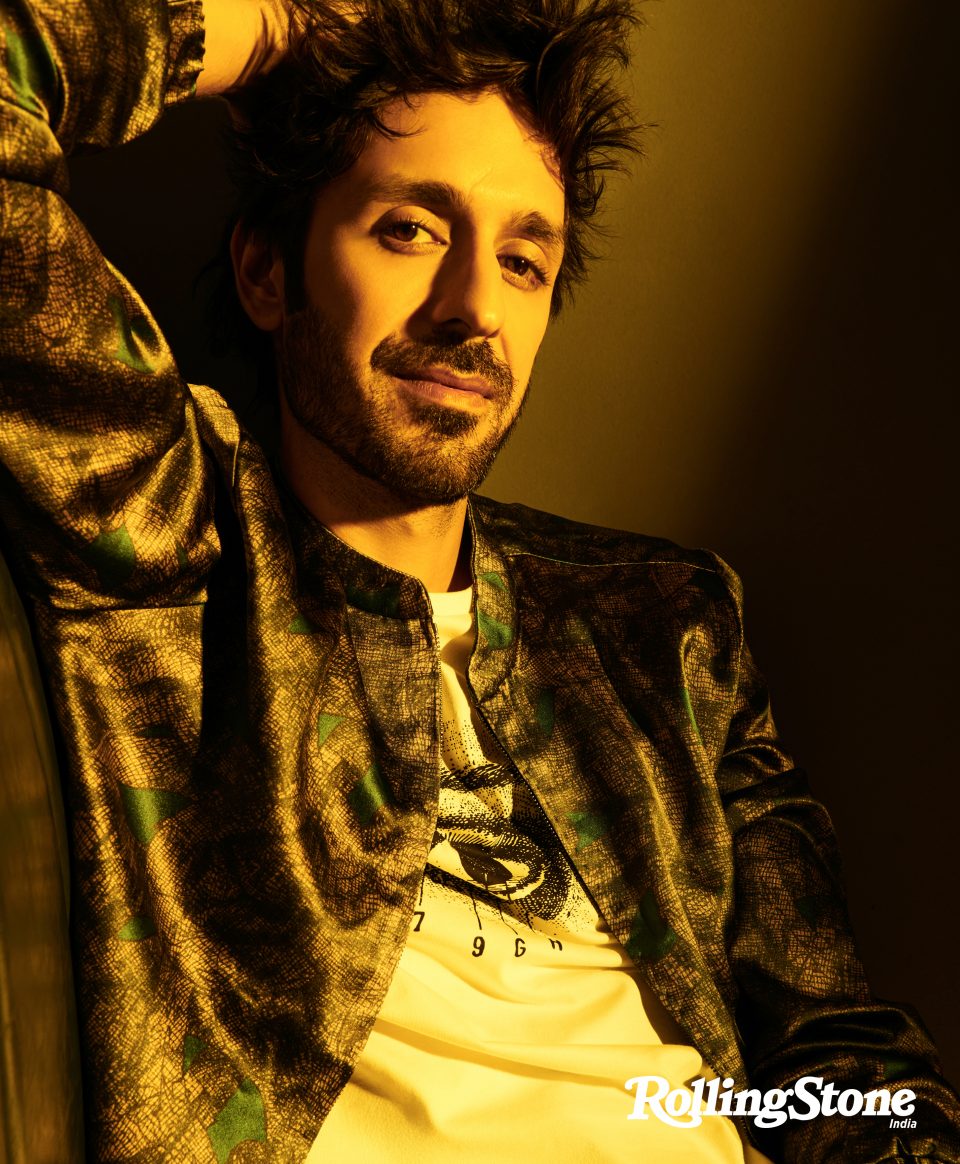
T-shirt and bomber jacket by No Grey Area. Photo: Kunal Gupta for Rolling Stone India
Putting Dualist Inquiry on a hiatus, Bakshi enrolled at the FAMU film school in Prague on a whim and got in. He says with a laugh, “Film was this new relationship to me, without any history and music was like this love of my life but on slightly difficult terms at that point.” He traded in touring for the student life, hanging out with fellow students who were younger than him and also oblivious to his achievements in music. “It gave me some feeling of progress in some way. It reminded me of my beginnings with music – where I found this thing and jumped right into it, straight away went to music school without thinking too much about it and it yielded its results a few years later,” he says.
But by no means was this a restful break – Bakshi was still looking forward to getting back to music, despite the bouts of self-doubt. Parallelly, DJ-producer Mohammed Abood aka MoCity and Bakshi founded online radio station Boxout.fm in 2017 just before he left for Prague. His musical output was all glitchy and often unsatisfying, but he got to sit in an office for six hours and hack away at creating a different community for musicians in India through programming, weekly gigs and festival curation. “We went for the most ambitious version of our plan,” he says.
Meanwhile, after Prague, Bakshi resumed Dualist Inquiry with two singles in 2018 that showcased a glimmering return to form, “Mayday” and “Fever Dream.” Both tracks featured audio samples that indicated the producer was thinking in terms of scenes, visuals and dialogs. “A lot of times, I’ll be writing a song and I’ll have a visual in my head. While I’m imagining a scene in my head, I’m also thinking, ‘Yeah you’ll never be able to shoot that.’ I imagine like a car driving under a bridge, it’s all concrete and there’s smoke in the air. But I think, ‘I’ll never be able to shoot that with our budget!” He says with a laugh.

Blazer by Jack & Jones; Turtleneck by Selected Homme; Celebrations Partner: Jameson Black Barrel. Photo: Kunal Gupta for Rolling Stone India.
While music videos for the two songs never came out, it began the process for Bakshi to keenly learn about filmmaking as well as visual effects. The results were then seen in the nostalgia-laden music video for his dancey track “You & Me” with vocalist-guitarist Sanchal Malhar (from rock band The Superfuzz) as well as a kaleidoscopic trip for “Life Forms,” the title track off his 2019 EP. As recently as November, Bakshi directed a music video for another collab with Malhar, the pop-leaning love song “Closer.”
It was a conscious decision to credit the music to Dualist Inquiry and use his real name for video credits. “It’s very important, in my opinion, to go for realistic goals in video. And even doing that is frikkin’ hard. Doing the lo-fi aesthetic well, for example, that’s why most of my videos will be lo-fi, because we’re working with limited resources.”
Although he was aided by seasoned filmmaker Sachin S. Pillai for cinematography, Bakshi had put the female lead character of the video – portrayed by dancer Sharanya Narayanan – in a green screen suit and the VFX that we see in the video took 16-hour shifts for 19 days to perfect. “I was like, ‘Am I tripping? Is this a mistake?’ Sachin later said, ‘No no, you’ll be fine. It might kick your ass, but you’ll be fine.’”
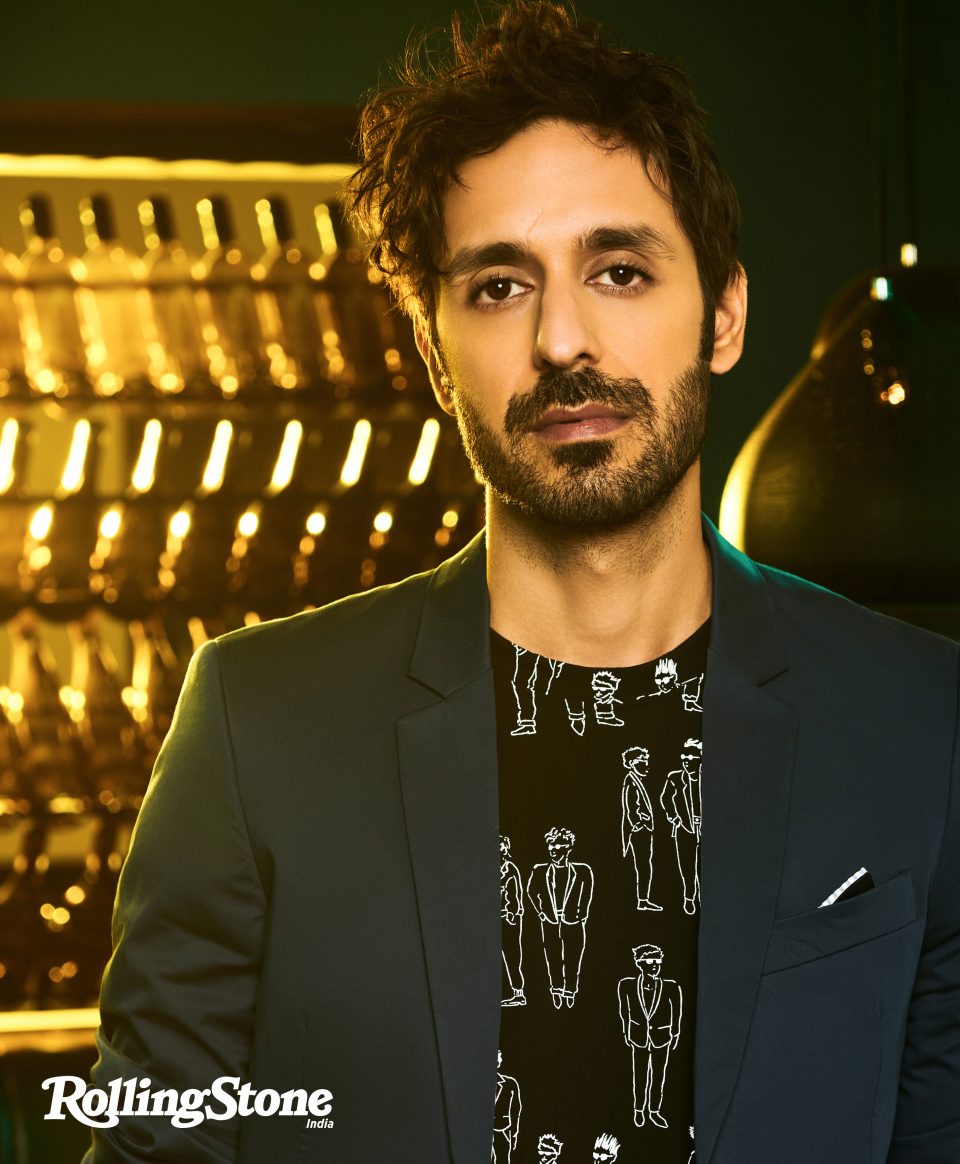
Suit by Paul Smith; T- Shirt by Moschino Couture available at The Collective. Photo: Kunal Gupta for Rolling Stone India
Sonically, Dualist Inquiry is very much the fluid, unencumbered entity that Bakshi has always guided through his multi-genre influences. Unlike video, the processes involved as a music producer for Dualist are very much streamlined thanks to all the synths, faders, pads and effect pedals he’s gathered over the years. Still positioned as a live producer gig for Bakshi, there’s also a full band setup that has evolved over the years, previously adding musicians such as producer-keyboardist Sandunes aka Sanaya Ardeshir and drummer-percussionist Jiver aka Jivraj Singh. It’s pre-pandemic outing included violinist Sayan Sinha, drummer Suyash Gabriel and keyboardist Anil Chawla.
He hints towards a change in his compositional style that leans towards alt-pop more than beat-driven dancefloor-friendly music, perhaps something that owes itself to being shut in due to the pandemic. He says, “I had the opportunity to go deeper in the realm of composition because it really helps me re-identify as a musician as opposed to a producer. All the technical stuff, gear and all, I don’t know what to do with that unless I’m composing stuff that isn’t good by default. This song with Sanchal was the first kind of output from that kind of mentality. I didn’t need to do a lot in this song, I don’t need to make it some massively orchestrated thing. I told myself, ‘This is a simple song and I just need to figure the perfect chords, the perfect guitar tone for it, the best drum beat that I can possibly produce.’ It’s simple but so difficult.”
Alongside a different compositional approach, Bakshi is also now armed with much more perspective on the music industry as well through Boxout.fm. He realizes how, as he sat in the room for discussions about festival slots, gig lineups and brand tie-ups, that the industry “sorts through artists” as products in some circumstances. At such a time, Bakshi says he realized how many artists are often ahead of their time or what he likes to call “three steps ahead.” He adds, “But the sweet spot is people who are maybe one step ahead or maybe two steps ahead of the current paradigm. You go too far into the future and it’s science fiction, you know? You aren’t able to do much.”
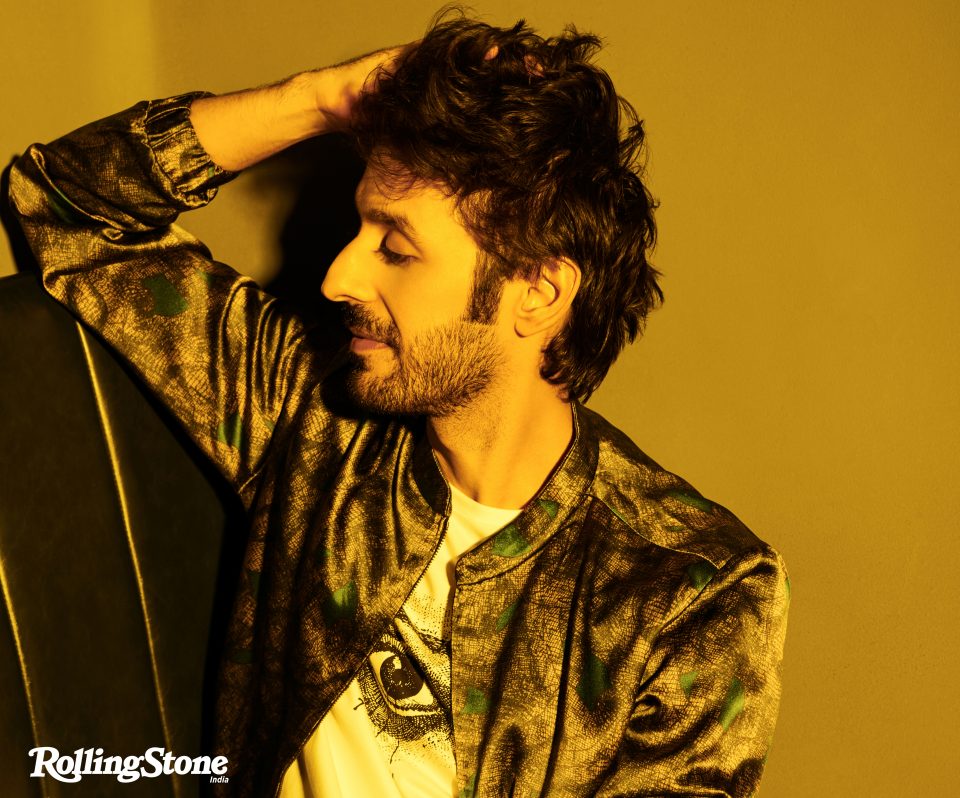
T-shirt and bomber jacket by No Grey Area. Photo: Kunal Gupta for Rolling Stone India
As for Dualist, he’s still a “wanderer” who can “go in and out of various scenes and communities.” Bakshi can say that with pride, considering he’s worked with everyone from folk-fusion band Swarathma on remixes to B2B sets with DJ-producers such as Anish Sood and offered slots on house and techno lineups. In his wanderings, video is a permanent fixture, even if it takes him years to get it right to the point that he’s about as happy with it as his musical output. He says, “There might be slightly ill-advised or overambitious attempts to make videos for all of my music. Maybe it’ll kill me in the process but I’m gonna try.”
Some background score work and other composing projects are also on the horizon, plus directing music videos for other artists. Dualist might never stop being a tutorial addict, but he’s also focused and more content than ever. “After all the challenges, now, the last three or four months feel like we’re finally getting there […] I want to prioritize giving care and attention to my own life and relationships and knowing when to take time off and it’s too much. It doesn’t feel so serious at the moment, as if everything is riding on the next release. It does great, that’s great. If it doesn’t, that’s cool – I’ll go to the beach and have a walk with my wife.”
Photographer: Kunal Gupta
Art director: Tanvi Shah
Fashion editor: Neelangana Vasudeva; fashion assistant: Foram Kubadia;
Hair and makeup artist: Laila Dalal;
Location courtesy: Blackmarket, Goa;
Celebrations Partner: Jameson Black Barrel





